You are using an out of date browser. It may not display this or other websites correctly.
You should upgrade or use an alternative browser.
You should upgrade or use an alternative browser.
No banks are safe (bail ins, FDIC limits, systemic risks)
Welcome to the Precious Metals Bug Forums
Welcome to the PMBug forums - a watering hole for folks interested in gold, silver, precious metals, sound money, investing, market and economic news, central bank monetary policies, politics and more.
Why not register an account and join the discussions? When you register an account and log in, you may enjoy additional benefits including no Google ads, market data/charts, access to trade/barter with the community and much more. Registering an account is free - you have nothing to lose!
- Messages
- 36,925
- Reaction score
- 6,346
- Points
- 288
NEW YORK, Nov 30 (Reuters) - Bank of America (BAC.N) has been fined $24 million after two former traders placed phony "spoof" trades to try to influence the market for U.S. Treasuries, the Financial Industry Regulatory Authority said on Thursday.
Spoofing involves placing orders traders intend to cancel, hoping to create a false sense of market activity that moves prices in a direction they favor, and induce transactions that other traders would otherwise would not make.
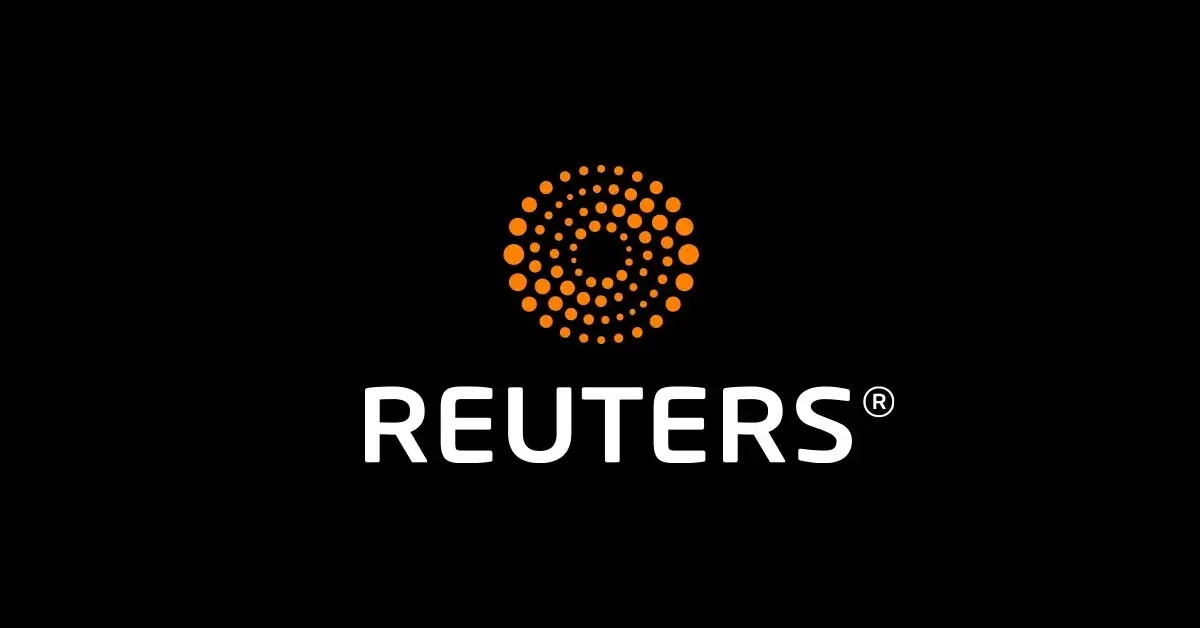
 www.reuters.com
www.reuters.com
Spoofing involves placing orders traders intend to cancel, hoping to create a false sense of market activity that moves prices in a direction they favor, and induce transactions that other traders would otherwise would not make.

US regulator fines Bank of America $24 mln for Treasuries spoofing
Bank of America has been fined $24 million after two former traders placed phony "spoof" trades to try to influence the market for U.S. Treasuries, the Financial Industry Regulatory Authority said on Thursday.
- Messages
- 986
- Reaction score
- 1,406
- Points
- 278
Vietnam rocked by $12.4 billion banking corruption scandal — Southeast Asia's largest ever
Vietnam is facing its largest banking scandal, with the recent arrest of real estate developer, Truong My Lan, accused of embezzling around 304 trillion dong (approximately $12.4 billion).https://www.yahoo.com/news/vietnam-rocked-12-4-billion-180357040.html
- Messages
- 36,925
- Reaction score
- 6,346
- Points
- 288
WASHINGTON, Dec 4 (Reuters) - The top bosses of JPMorgan, Bank of America, Citigroup, Wells Fargo and other major banks are expected to warn lawmakers this week that capital hikes and other new regulations will hurt the economy and should be indefinitely shelved.
Worker pay and rights, climate change, mortgages, and financial stability are also likely to feature when the CEOs of the country's eight largest banks appear before the Senate Banking Committee on Wednesday, said executives and analysts.

 www.reuters.com
www.reuters.com
Worker pay and rights, climate change, mortgages, and financial stability are also likely to feature when the CEOs of the country's eight largest banks appear before the Senate Banking Committee on Wednesday, said executives and analysts.

U.S. bank CEOs expected to protest regulation push before Congress
The top bosses of JPMorgan, Bank of America, Citigroup, Wells Fargo and other major banks are expected to warn lawmakers this week that capital hikes and other new regulations will hurt the economy and should be indefinitely shelved.
From Friday - prior to the banks whining to Congress reported in the post above:
More:
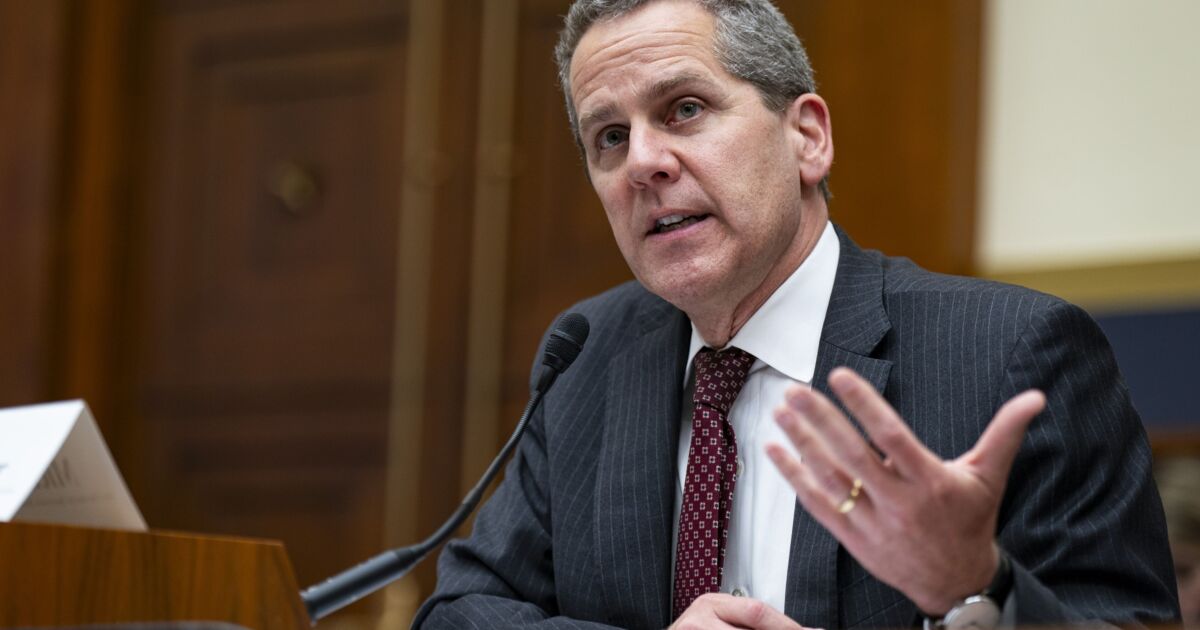
 www.americanbanker.com
www.americanbanker.com
In a speech delivered Friday morning at a forum hosted by the European Central Bank in Frankfurt, Germany, Fed Vice Chair for Supervision Michael Barr said the failure of Silicon Valley Bank "changed everyone's perception of the possible speed of bank runs" and exposed weaknesses in emergency funding systems that are still being evaluated today.
"What occurred in two or three weeks or, in some cases, many months in previous episodes may, in the modern era, now occur in hours," Barr said. "These issues are top of mind as we review and consider future adjustments to the way in which we should supervise and regulate liquidity risk."
As a result, Barr said, the Fed is weighing whether adjustments are needed for the regulatory frameworks designed to help banks insure themselves against losses. These include the liquidity coverage and net stable funding ratios, which are designed to ensure banks can fund themselves through 30 days of deposit outflows.
"These requirements may not, on their own, be sufficient to stem a rapid run," Barr said. "The speed of bank runs and the impediments to rapidly raising liquidity in private markets that may be needed in hours rather than days suggest it may be necessary to re-examine our requirements, including with respect to self-insurance standards and to discount window preparedness."
...
More:

Fed's Barr: New liquidity requirements might be needed to stem bank runs
The Federal Reserve's vice chair for supervision said the central bank is weighing regulatory and supervisory changes to liquidity management standards. Current approaches, he said, might not be able to contend with the speed of modern runs.
Ranking Member Tim Scott (R-S.C.) is leading fellow Banking Committee Republicans in calling on Federal Deposit Insurance Corporation (FDIC) Chairman Martin Gruenberg to provide detailed information regarding the recent allegations of a toxic workplace culture, including allegations of sexual harassment and mistreatment of employees, and to resign as Chairman and Board Member. Senators Thom Tillis (R-N.C.), Cynthia Lummis (R-Wyo.), Kevin Cramer (R-N.D.), and Steve Daines (R-Mont.) joined the Ranking Member in the letter to Gruenberg.
...
Scott Leads Banking Republicans in Call for FDIC’s Gruenberg to Resign, Provide Answers on Allegations of Sexual Harassment at the FDIC | United States Committee on Banking, Housing, and Urban Affairs
The Official website of The United States Committee on Banking, Housing, and Urban Affairs
www.banking.senate.gov
The letter (6 page .PDF):
...
The culture of an organization is set from the top. As such, we have significant concerns with your ability to continue leading the FDIC as it seeks to clean up its public image and provide much-needed changes to its workplace culture to return the FDIC to working order. Given the importance of the role of the FDIC in maintaining stability and public confidence in the nation's financial system,6 we call on you to step down as Chairman and Board Member and allow someone with more credibility to address the hostile workplace culture at the FDIC to which you have contributed.
...
Savage.
The Special Committee of the Federal Deposit Insurance Corporation (FDIC) Board of Directors established to oversee an independent third-party review of the agency’s workplace culture issued the following statement today:
“The Special Committee has appointed the law firm of Cleary Gottlieb Steen & Hamilton LLP to conduct an independent review into allegations of sexual harassment and interpersonal misconduct, as well as issues relating to the workplace culture at the FDIC. The team at Cleary Gottlieb will be led by Joon H. Kim, the former Acting U.S Attorney for the Southern District of New York, Jennifer Kennedy Park, and Abena Mainoo.
“This team at Cleary Gottlieb has conducted numerous investigations into workplace misconduct and hostile work culture, including being appointed by the New York State Attorney General’s Office to conduct an independent investigation into allegations of sexual harassment and other related misconduct involving the former New York Governor Andrew Cuomo and the New York State Executive Chamber."
“The Special Committee is committed to an independent and thorough review,” said committee co-chair Michael J. Hsu. “There is no question that the Cleary Gottlieb team has both the experience and the expertise to lead this review.”
I don't know anything about Cleary Gottlieb, so I read their wiki page and saw this:
... Current notable attorneys include ... a former FDIC general counsel ...
Cleary Gottlieb Steen & Hamilton - Wikipedia
Uh huh. That's independence!
- Messages
- 36,925
- Reaction score
- 6,346
- Points
- 288
- Basel Committee publishes consultation on targeted adjustment to its standard on interest rate risk in the banking book.
- Adjustments update calibration of the standard's interest rate shock parameters and methodology used to calculate the shocks.
- Comments on the proposed adjustments requested by 28 March 2024.
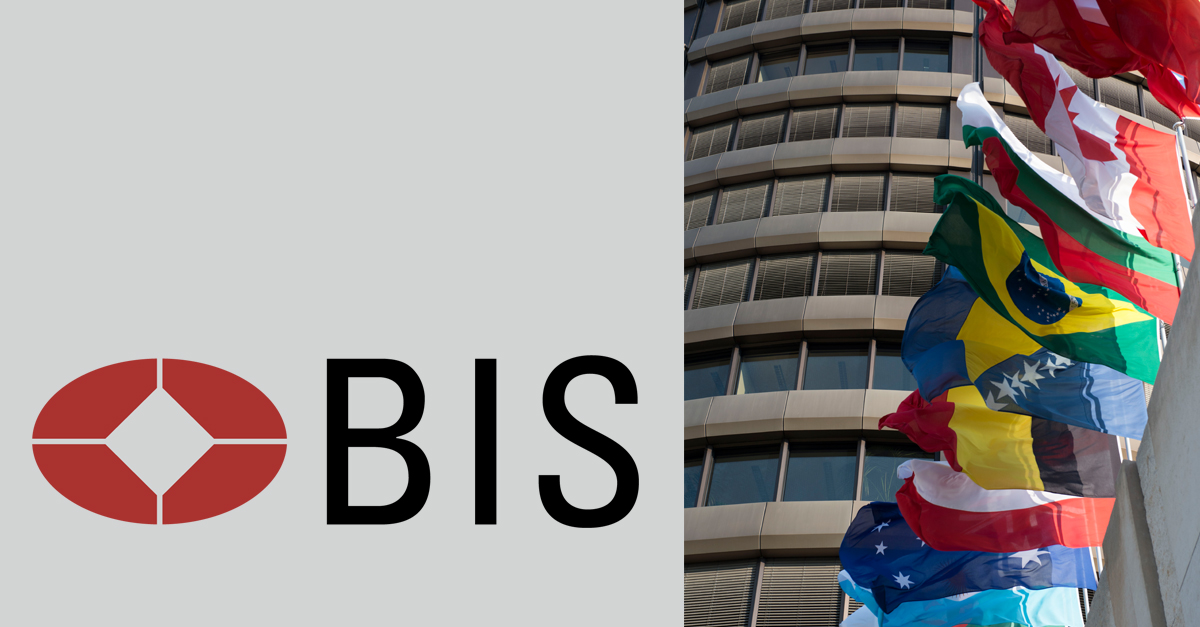
Basel Committee consults on targeted adjustments to its standard on interest rate risk in the banking book
Basel Committee publishes consultation on targeted adjustment to its standard on interest rate risk in the banking book. Adjustments update calibration of the standard's interest rate shock parameters and methodology used to calculate the shocks. Comments on the proposed adjustments requested by...
The Basel Committee on Banking Supervision today published a consultative document ...
So, I clicked that link and saw:
The Committee welcomes comments on the proposed amendments to the IRRBB standard, which should be submitted here by 28 March 2024. All submissions will be published on the BIS website unless a respondent specifically requests confidential treatment.
I thought to myself... why not? and submitted the following comment:
Because central bank interest rate policies stoke inflation, and inflation has outsized negative effects on the poor and middle classes, fiat monetary systems are immoral:
https://www.pmbug.com/threads/the-immorality-of-central-bank-fiat-monetary-systems.6423/
Nations should adopt gold as unpegged legal tender for a just and equitable monetary system:
https://www.pmbug.com/threads/gold-as-unpegged-legal-tender.5705/
Thank you.
Will they publish it?



Also, back in May/June, there was a lot of news about PacWest Bancorp teetering on the brink of bankruptcy.

 www.latimes.com
www.latimes.com
Banc of California, Inc. (Banc of California) has announced the completion of its transformational merger with PacWest Bancorp (PacWest), pursuant to which PacWest has merged into Banc of California, and as of December 1, 2023, Banc of California, N.A. will have merged into Pacific Western Bank.
The combined bank will operate under the Banc of California name and brand. Concurrent with the completion of the merger, Banc of California also completed its $400 million equity raise from affiliates of funds managed by Warburg Pincus LLC and certain investment vehicles sponsored, managed or advised by Centerbridge Partners, L.P. and its affiliates.
...
In connection with the merger, Banc of California, N.A. and Pacific Western Bank have sold approximately $1.9 billion in assets as part of the previously disclosed balance sheet repositioning strategy, which includes additional asset sales expected to be completed through the end of the first quarter of 2024.
As of the merger closing date, Pacific Western Bank has sold approximately $1.5 billion of its securities portfolio, which included agency commercial mortgage-backed securities, agency collateralized mortgage obligations (CMO), treasury bonds, municipal bonds and corporate bonds. As of the merger closing date, Banc of California, N.A. has sold approximately $447.4 million of its securities portfolio, which included agency mortgage-backed securities, CMOs and municipal bonds. In addition, the previously announced forward sale of Banc of California’s $1.8 billion single-family residential mortgage portfolio (SFR Portfolio) is expected to close on or about December 1, 2023. The proceeds from the securities sales and the SFR Portfolio sale, as well as proceeds from additional balance sheet repositioning sales to come, are expected to be utilized primarily for the repayment of the combined bank’s wholesale borrowings and higher cost funding.
...

Banc of California Announces Completion of Merger with PacWest Bancorp and $400 Million Equity Raise
Banc of California, Inc. (Banc of California) has announced the completion of its transformational merger with PacWest Bancorp (PacWest), and as of December 1, 2023, Banc of California, N.A. will have merged into Pacific Western Bank.
- Messages
- 36,925
- Reaction score
- 6,346
- Points
- 288
Former First Republic workers sue FDIC over withheld retirement pay
By Douglas Gillison(Reuters) -Nearly 170 former employees of California's failed First Republic Bank have sued the U.S. Federal Deposit Insurance Corporation (FDIC), alleging that the regulator is improperly blocking their access to at least $150 million in retirement funds, a plaintiffs' attorney said on Monday.
The lawsuit marks the latest fallout for the FDIC from three bank failures earlier this year that cost the agency's deposit insurance fund about $32 billion and have drawn scrutiny from lawmakers.
The lawsuit was filed on Dec. 5 in the U.S. District Court for the Northern District of California but has not been previously reported.
More:
And its Gone...
I think it's going to happen to most of us, one way or another.
Market collapse; railroad/military pensions tied to Proof-Of-Jab; (anti)Social (in)Security bankrupted by the tens of MILLIONS of Instant Democrats. Private firms bankrupted, and executive pensions gone. Unions busted, and union pensions gone. Banks under "Financial Repression" - and depositors are just a new class of creditor, getting in line behind the globalist interests.
All this while people are dropping dead like flies.
Market collapse; railroad/military pensions tied to Proof-Of-Jab; (anti)Social (in)Security bankrupted by the tens of MILLIONS of Instant Democrats. Private firms bankrupted, and executive pensions gone. Unions busted, and union pensions gone. Banks under "Financial Repression" - and depositors are just a new class of creditor, getting in line behind the globalist interests.
All this while people are dropping dead like flies.
- Messages
- 36,925
- Reaction score
- 6,346
- Points
- 288
The worst year for banks since 2008 | FT Film
Dec 26, 2023The banking sector survived two big shocks in 2023: the collapse of Silicon Valley Bank and the disaster-driven sale of Credit Suisse. Swift action prevented a global economic crisis but threats remain
20:26
Channel: https://www.youtube.com/@FinancialTimes/videos
- Messages
- 36,925
- Reaction score
- 6,346
- Points
- 288
Big US banks to call on Fed to rewrite contentious bank capital rule
WASHINGTON (Reuters) - Banks on Tuesday will urge the U.S. Federal Reserve to completely overhaul a draft rule hiking bank capital, in the latest leg of Wall Street's effort to water down the "Basel Endgame" proposal that bankers say will hurt the economy.
Comments on the Basel rule, and two other big bank capital and long-term debt draft rules that aim to boost banking system safety and soundness, are due on Tuesday.
The deadline offers banks a key opportunity to try to reshape the Basel rule, which they have been fiercely fighting with lobbying and public advertising and media campaigns.
More:
Of course they are but the rest of the world has Already moved on and are going to crush the US banksters.
Probably not related to my previous post....
The European Central Bank has asked some banks to closely monitor activity on social media to detect a worsening in sentiment which could lead to a deposit run, two banking executives with knowledge of the request told Reuters.
...
In response to the ECB's requests which were specific to certain banks in the region, a major European lender has arranged for a team to signal significant volumes of negative posts to the bank's treasury, which will in turn assess any impact on deposits, one of the two executives said.
While early detection might not stop a bank run, regulators and banks are eager not to be caught off guard, according to the people familiar with the regulators' thinking.
...
- Messages
- 36,925
- Reaction score
- 6,346
- Points
- 288
UPDATE 1-Fed to allow emergency bank lending program expire on March 11
Jan 24 (Reuters) - The Federal Reserve on Wednesday said a funding lifeline created for banks last year after the collapse of Silicon Valley Bank threatened to spark a wider financial crisis would close as scheduled in March.The Fed also will immediately raise the interest rate on new loans from the Bank Term Funding Program (BTFP) for the remainder of its life, effectively ending what had become a popular and profitable arbitrage opportunity for U.S. lenders.
The sun-setting of the program on March 11 had been signaled by Fed officials as fear in the banking system abated.
More:
- Messages
- 36,925
- Reaction score
- 6,346
- Points
- 288
HSBC failed to protect $142 billion in deposits, receives bumper fine
LONDON, Jan 30 (Reuters) - HSBC (HSBA.L), opens new tab has been fined 57.4 million pounds for "serious failings" in protecting up to 112 billion pounds ($142 billion)of deposits over several years, in the first penalty of its kind under UK rules designed to protect customers if banks fail.The Bank of England's Prudential Regulation Authority (PRA) said on Tuesday that HSBC failed to accurately identify deposits eligible for Britain's Financial Services Compensation Scheme (FSCS) - which protects customer cash up to 85,000 pounds.
More:
- Messages
- 36,925
- Reaction score
- 6,346
- Points
- 288
US bank lobbyists ranks swell to post-crisis high amid regulatory pushback
February 8, 2024Feb 8 (Reuters) - The number of big bank Washington lobbyists is the highest since the 2007-09 global financial crisis, driven by hiring among midsize lenders which are facing new rules and tougher oversight after last year's turbulence, new lobbying data shows.
At the end of 2023, 486 federal lobbyists were working on behalf of banks with $50 billion or more in assets and seven trade groups, according to a Reuters analysis of data provided by OpenSecrets, a nonpartisan political transparency group. That was a 3.4% bump on 2022 when the industry's lobbying ranks swelled to their highest level of any year since 2008, the data shows.
Reuters analyzed OpenSecrets figures for 2008 to 2023, finding the most recent numbers were the highest for all years during that period. The headcount includes registered individual lobbyists working for the banks and for outside firms the banks and trade associations hire.
Over the past six years, growth in the bank lobby's ranks has been largely driven by lenders with more than $100 billion in assets who are not among the eight Wall Street giants, such as Capital One (COF.N), opens new tab, TD Bank (TD.TO), opens new tab and Truist (TFC.N), opens new tab.
More:
- Messages
- 36,925
- Reaction score
- 6,346
- Points
- 288
Focus: Real estate pain for US regional banks is piling up, say investors
NEW YORK/WASHINGTON, Feb 12 (Reuters) - New York Community Bancorp's (NYCB.N), opens new tab exposure to commercial real estate has intensified investor scrutiny around regional banks, with some expecting more pain for those with office and multifamily property loans.Fears about the health of the smaller banks have escalated again a year after the collapse of Silicon Valley Bank in spring of 2023 triggered a regional banking crisis.
NYCB's recent earnings release which sparked a dive of about 60% in its shares has particularly focused investors on combing through portfolios of regional banks, as small banks account for nearly 70% of all commercial real estate (CRE) loans outstanding, according to research from Apollo.
“As long as interest rates stay high, it's hard for the banks to avoid problems with CRE loans," said short-seller William C. Martin of Raging Capital Ventures, who decided to place a bet against NYCB after the bank's disastrous Jan. 30 earnings release which detailed real estate pain and led him to believe that shares could sink further on more real estate losses.
Martin, who shorted Silicon Valley Bank last year before its collapse, said he shorted NYCB because he thought its earnings power would be diminished and that it might have to raise capital. NYCB said on Wednesday that a capital increase is an option, but that it has no plan to do this "right at the moment."
More:
- Messages
- 36,925
- Reaction score
- 6,346
- Points
- 288
IRS sues FDIC over Silicon Valley Bank's $1.4 billion tax debt
(Reuters) - The U.S. Internal Revenue Service on Tuesday sued the Federal Deposit Insurance Corporation, asking a judge to determine how much the FDIC must pay to cover an estimated $1.45 billion tax debt owed by the failed Silicon Valley Bank.The FDIC, which seized SVB and its assets in March 2023, has denied the entire tax claim, according to a complaint filed in federal court in Washington. The IRS said the court should overrule the FDIC's decision to deny the tax claim, and make a new determination on the validity and amount of taxes owed.
The FDIC is acting as a receiver for the bank, gathering the bank's assets and using them to repay SVB's creditors.
The IRS said its initial $1.45 billion claim was an estimated total for taxes due between 2020 and 2023, and that it was still reviewing SVB's tax returns when it filed the claim. The IRS later learned that some of the employment taxes included in its claim have already been paid.
The IRS and the FDIC did not immediately respond to requests for comment on the dispute.
More:
- Messages
- 36,925
- Reaction score
- 6,346
- Points
- 288
Federal Reserve Board releases the hypothetical scenarios for its annual stress test
The Federal Reserve Board on Thursday released the hypothetical scenarios for its annual stress test, which helps ensure that large banks can lend to households and businesses even in a severe recession. Additionally, for the first time, the Board released four hypothetical elements designed to probe different risks through its "exploratory analysis" of the banking system. The exploratory analysis will not affect bank capital requirements.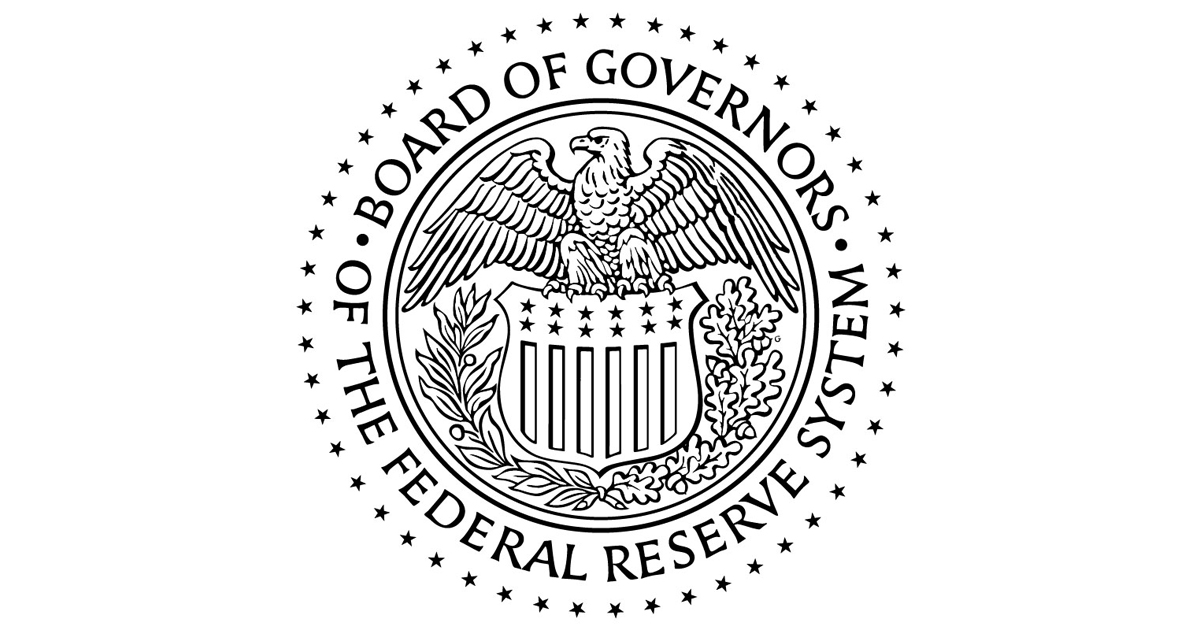
Federal Reserve Board releases the hypothetical scenarios for its annual stress test
The Federal Reserve Board on Thursday released the hypothetical scenarios for its annual stress test, which helps ensure that large banks can lend to household
www.federalreserve.gov
- Messages
- 36,925
- Reaction score
- 6,346
- Points
- 288
A bit different.
New York bank settles wage dispute with a $5.8 million payout
Community Bank System in Syracuse, New York, has agreed to pay $5.8 million to forestall a threatened class action lawsuit involving branch employees' allegations of unpaid wages.
The $15.6 billion-asset Community Bank System disclosed its payout plans last week in a filing with the Securities and Exchange Commission. Though the company expects to execute the settlement during the first quarter of 2024, it is treating the expense as a subsequent event for accounting purposes, thus including it in a revised fourth-quarter earnings statement.
The payout reduced profits for the three months ending December 31 from the originally reported $38.3 million to a revised total of $33.7 million. Full year 2023 net income was revised downward to $131.9 from the original $136.5 million.
More:

 www.americanbanker.com
www.americanbanker.com
New York bank settles wage dispute with a $5.8 million payout
Community Bank System in Syracuse, New York, has agreed to pay $5.8 million to forestall a threatened class action lawsuit involving branch employees' allegations of unpaid wages.
The $15.6 billion-asset Community Bank System disclosed its payout plans last week in a filing with the Securities and Exchange Commission. Though the company expects to execute the settlement during the first quarter of 2024, it is treating the expense as a subsequent event for accounting purposes, thus including it in a revised fourth-quarter earnings statement.
The payout reduced profits for the three months ending December 31 from the originally reported $38.3 million to a revised total of $33.7 million. Full year 2023 net income was revised downward to $131.9 from the original $136.5 million.
More:

New York bank settles wage dispute with a $5.8 million payout
Community Bank System in Syracuse faced claims it failed to properly pay some branch-level employees, making it one of a growing number of banks forced to confront compensation-related disputes in recent months.
Federal Reserve Board releases the hypothetical scenarios for its annual stress test
I mentioned it in the interest rate thread, but the "hypothetical scenarios" they are testing are likely harbingers of the Fed's inclination to raise rates this year.
- Messages
- 36,925
- Reaction score
- 6,346
- Points
- 288
I mentioned it in the interest rate thread, but the "hypothetical scenarios" they are testing are likely harbingers of the Fed's inclination to raise rates this year.
My bad..........
- Messages
- 36,925
- Reaction score
- 6,346
- Points
- 288
In the Market: Banks warily warm up to Fed repo backstop
Feb 27 (Reuters) - Banks are finally signing up for a U.S. Federal Reserve funding backstop that has been lying nearly dormant for more than two years, putting them in a stronger position to deal with any stress. But it is unclear whether they will want to use it in a crisis.The Standing Repo Facility allows banks to borrow emergency overnight cash from the Fed through a repurchase agreement, or repo, using Treasury and agency mortgage securities as collateral. Firms that act as the New York Fed's trading counterparties, called primary dealers, have access, but other banks have to apply for it.
The backstop was set up in July 2021 to support money markets after interest rate spikes there led to worries about financial stability. Banks have been slow on the uptake.
Some market participants and researchers said the reluctance stemmed in part from worries that a stigma might be attached to it, as borrowing from the Fed in a crisis could be seen by investors and bank examiners as a sign of liquidity issues or other problems.
More:
- Messages
- 36,925
- Reaction score
- 6,346
- Points
- 288
- Basel Committee approves revisions to Core principles for effective banking supervision.
- Decides to consult on potential measures to address window-dressing behaviour by some banks in the context of the framework for global systemically important banks.
- Reaffirms expectation that all aspects of Basel III will be implemented in full, consistently and as soon as possible.

Basel Committee agrees to revisions to Basel Core Principles, consults on addressing window-dressing in the G-SIB framework and reaffirms expectation about Basel III implementation
Basel Committee approves revisions to Core principles for effective banking supervision. Decides to consult on potential measures to address window-dressing behaviour by some banks in the context of the framework for global systemically important banks. Reaffirms expectation that all aspects of...
- Messages
- 36,925
- Reaction score
- 6,346
- Points
- 288
- Moody’s slashed one of New York Community Bank’s key ratings for the second time in a month.
- As a result, the regional lender might have to pay more to retain deposits, according to analysts who track the company.
- NYCB finds itself in a stock freefall that began a month ago when it reported a surprise fourth-quarter loss and steeper provisions for loan losses.
- It fell a further 23% on Monday.

Some NYCB deposits may be a flight risk after Moody’s downgrades ratings again
Moody's slashed one of New York Community Bank's key ratings for the second time in a month.
The Grate Taking playbook.
David Rogers Webb predicted this...he's said more than once, he thought the rug-pull was only months, or weeks, away.
Now is the time to foment panic in the banking sector. Controlled demolition.
David Rogers Webb predicted this...he's said more than once, he thought the rug-pull was only months, or weeks, away.
Now is the time to foment panic in the banking sector. Controlled demolition.
TheRealZed
Retired Sailor
- Messages
- 3,002
- Reaction score
- 3,607
- Points
- 298
In the end, they can just credit the banks with the required amounts. Digits on a screen and all that. I assume that they'd rather do that than see the whole system hit the wall. They may even nationalise those that they save to quell bailout protests. What a perfect setup to then bring in a CBDC which would threaten the banking model anyway. Maybe a banking crash is desirable to the back room plotters. Your guess is as good as mine!
In the end, they can just credit the banks with the required amounts. Digits on a screen and all that. I assume that they'd rather do that than see the whole system hit the wall. They may even nationalise those that they save to quell bailout protests. What a perfect setup to then bring in a CBDC which would threaten the banking model anyway. Maybe a banking crash is desirable to the back room plotters. Your guess is as good as mine!
Yes...I'd say the Grate Takers are not the vice-presidents of JPMC.
I'd say even Sir Jamie is small fry, compared to who is really dealing the cards.
The rug-pull, and the Great Taking, lines up perfectly with Agenda 2030, the Grate Reset, and Own-Nothing-Be-Happy.
And I don't think the Masterminds care how many of their sublieutenants and pawns get destroyed. That's why they're THERE - to absorb flack.
- Messages
- 36,925
- Reaction score
- 6,346
- Points
- 288

Quarterly Banking Profile | FDIC.gov
The Quarterly Banking Profile is a quarterly publication that provides the earliest comprehensive summary of financial results for all FDIC-insured institutions
 www.fdic.gov
www.fdic.gov
They're late with the 4th quarter.
Hey, hey, hey.... Goodbye (sadly Zed as well).
NYCB plummeted and has been halted on the market. Likely never going to reopen.
It's really funny that they announced this (at least the reporting) during the middle of Powell testimony.
NYCB plummeted and has been halted on the market. Likely never going to reopen.
It's really funny that they announced this (at least the reporting) during the middle of Powell testimony.
Last edited:
Saved, for now, with another Billion dollars from private equity and Mnuchin. They just don't want This bank going down or are not ready yet. I don't know which.
I guess Mnuchin is trying his hand at Buffet's old playbook:
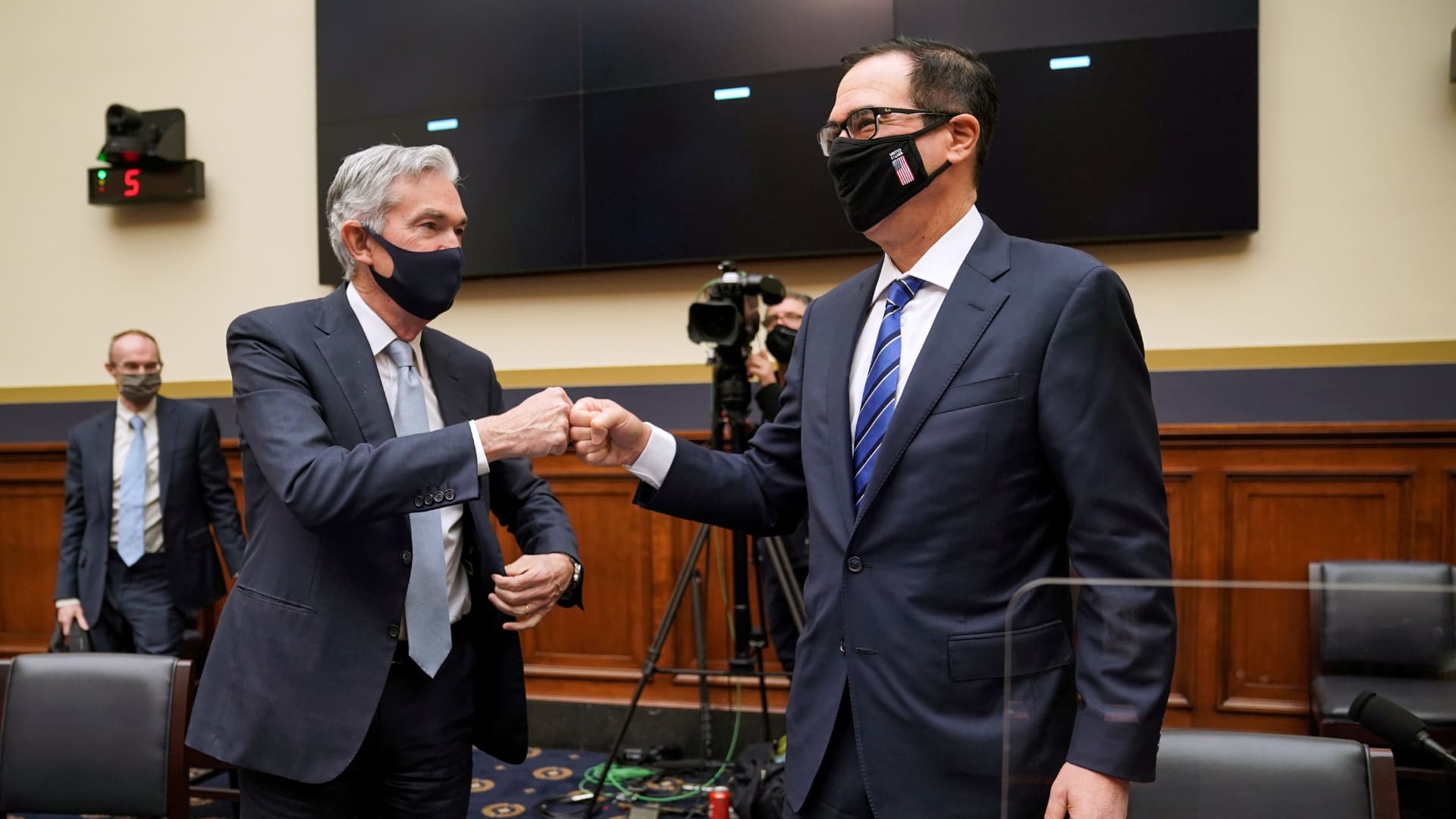
 www.cnbc.com
www.cnbc.com
The $1 billion-plus injection that New York Community Bank announced Wednesday is the latest example of private equity players coming to the need of a wounded American lender.
Led by $450 million from ex-Treasury Secretary Steven Mnuchin’s Liberty Strategic Capital, a group of private investors are plowing fresh funds into NYCB. The move soothed concerns about the bank’s finances, as its shares closed higher on Wednesday after a steep decline earlier in the day.
That cash infusion follows last year’s acquisition of PacWest by Banc of California, which was anchored by $400 million from Warburg Pincus and Centerbridge Partners. A January merger between FirstSun Capital and HomeStreet also tapped $175 million from Wellington Management.
Speed and discretion are key to these deals, according to advisors to several recent transactions and external experts. While selling stock into public markets could theoretically be a cheaper source of capital, it’s simply not available to most banks right now.
...

Why private equity has been involved in every recent bank deal
New York Community Bank's $1 billion-plus capital raise is the latest example of private equity players coming to rescue a regional bank.
Op-ed on the NY Community Bank shitshow:
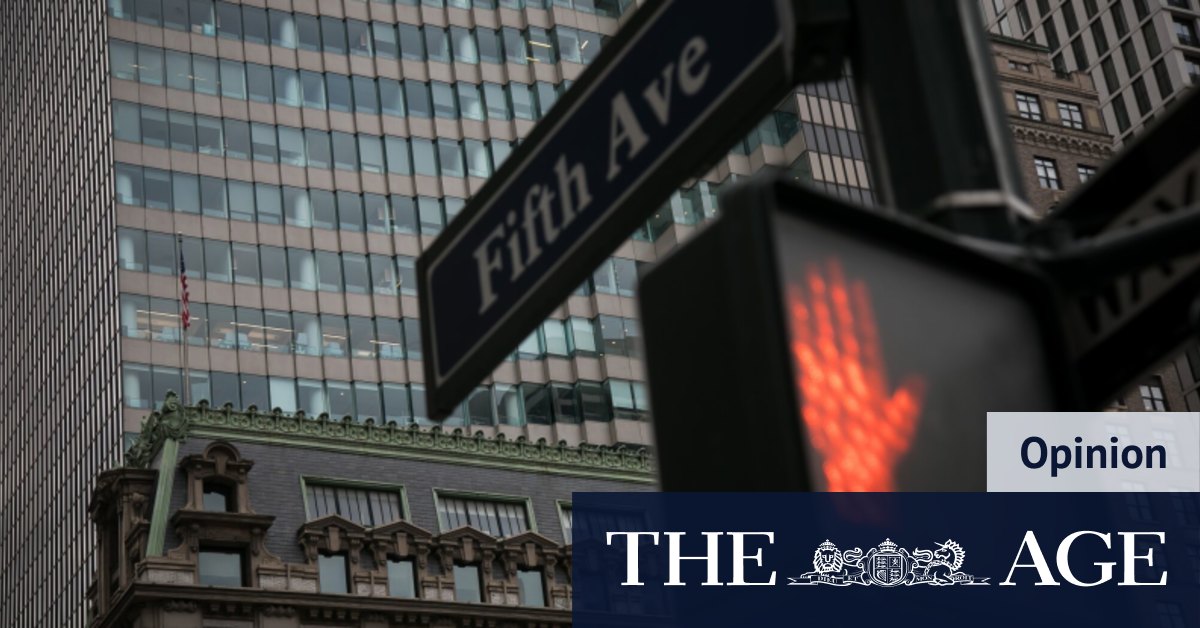
 www.theage.com.au
www.theage.com.au
The $1.5 trillion ‘property iceberg’ that has set off alarm bells
A bailout of a mid-sized US bank could be the signal that something more sinister is on the horizon.
